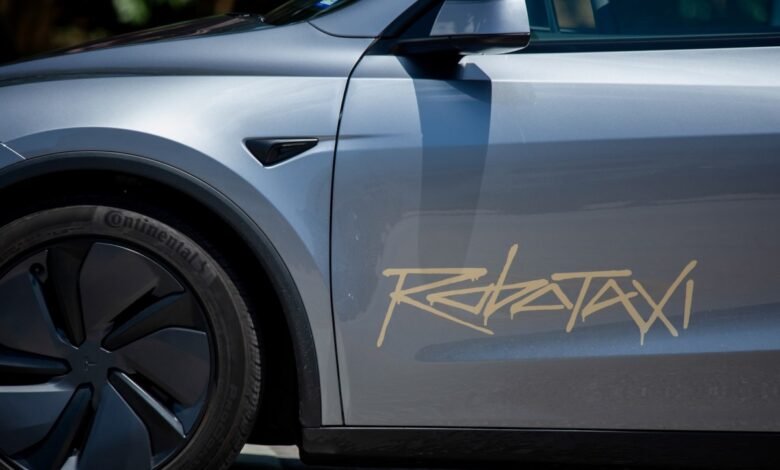Tesla Seeks Airport Ride-Hail Permits in Silicon Valley

▼ Summary
– Tesla has inquired about permits to operate a ride-hailing service at San Francisco, San Jose, and Oakland airports, though no applications have been filed yet.
– The company currently runs a limited charter service in California, using its Full Self-Driving software with drivers present, but lacks proper permits for a full ride-hail or robotaxi service.
– To expand in California, Tesla needs permits from the California Public Utilities Commission and, for autonomous vehicles, from the Department of Motor Vehicles.
– The California DMV is attempting to halt Tesla’s vehicle sales in the state due to concerns over its self-driving claims.
– Airports are strategic targets for new transportation services, as seen with Waymo’s operations in Phoenix and recent approval in San Jose, due to high demand and business opportunities.
Tesla has initiated discussions with San Francisco, San Jose, and Oakland airports regarding permits to operate a ride-hailing service, signaling a potential expansion of its mobility ambitions in California. According to reports, the company reached out to airport authorities around the same time it quietly launched a charter service in the state late last July. While San Francisco and Oakland officials confirmed contact with Tesla, no formal meetings have taken place. A spokesperson for San Jose International Airport clarified that while Tesla inquired about the permit process, no application has yet been filed.
Currently, Tesla lacks the necessary permits to operate a full-scale ride-hailing service in California, let alone a robotaxi network. Its existing offering is structured as a more limited charter service, which under state rules should not involve autonomous vehicle operations. However, videos from recent rides show drivers actively using the company’s Full Self-Driving (Supervised) software, an advanced driver-assistance system that still requires human oversight.
To scale its service, Tesla must secure a permit from the California Public Utilities Commission. If the company intends to incorporate autonomous vehicles into its fleet, it will also need approval from the Department of Motor Vehicles. Notably, the California DMV is currently challenging Tesla’s right to sell vehicles in the state, citing what it describes as overly aggressive marketing of the cars’ self-driving capabilities.
Airports have historically been cautious about admitting new transportation providers. A decade ago, they became battlegrounds as Uber and Lyft challenged traditional taxi and limousine services. More recently, airports have emerged as strategic targets for autonomous vehicle companies seeking to establish a foothold in urban mobility.
Waymo, for instance, has been offering airport rides in Phoenix for nearly two years and just received approval to operate at San Jose International Airport, with services expected to begin later this year after further testing. Airports represent significant business opportunities; Waymo has noted that Phoenix Sky Harbor is its most popular destination in the city.
Meanwhile, Tesla has been testing an invite-only robotaxi network in Austin, Texas, starting with about a dozen vehicles. The service area has since expanded across much of the greater Austin region, though the fleet size remains small, estimated at between 20 and 30 cars. In a notable shift, Tesla has moved the “safety monitor” role into the driver’s seat.
Texas imposes fewer transparency requirements on autonomous vehicle testing than California, making it difficult to assess the program’s performance. While several minor issues have been documented, no major accidents or serious incidents have been reported so far.
(Source: TechCrunch)